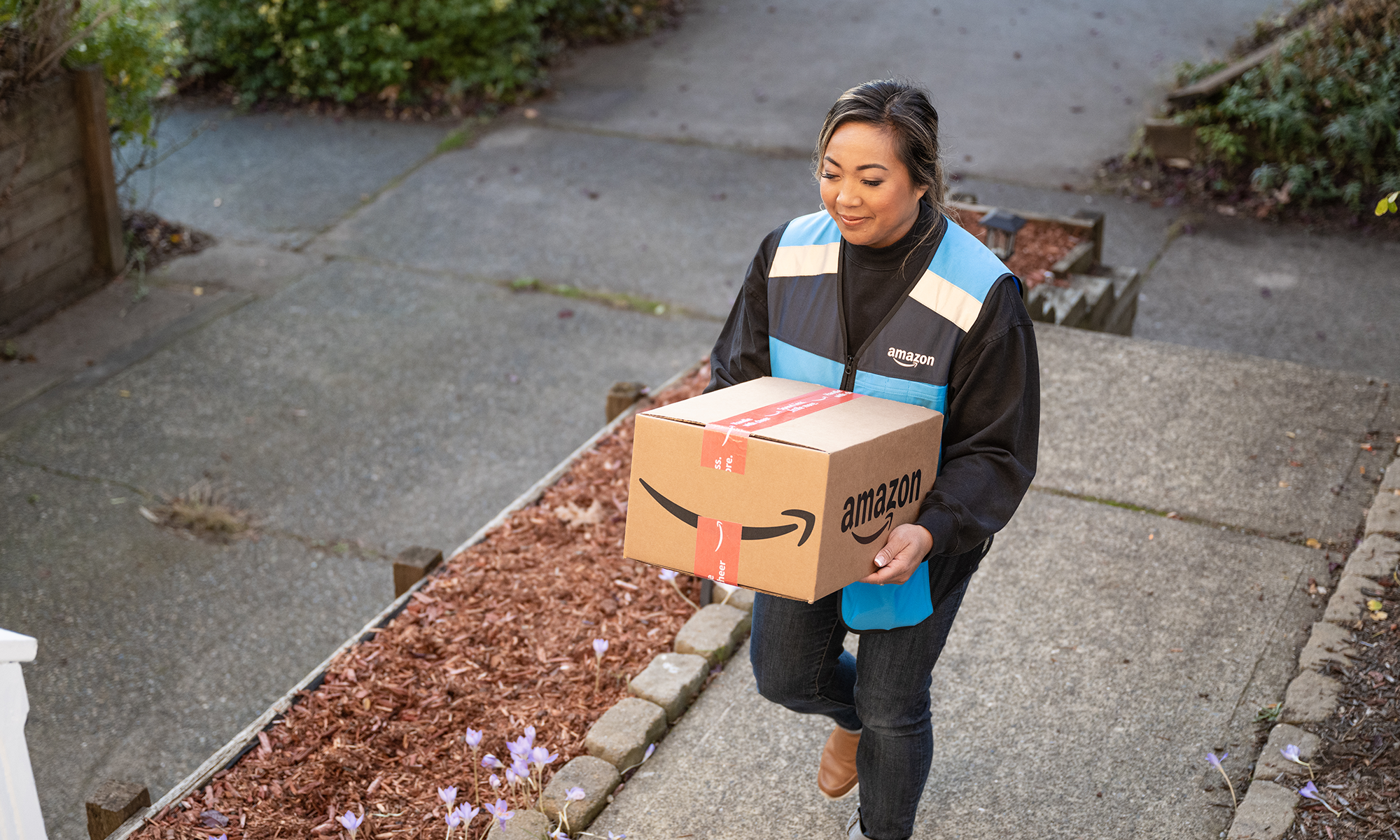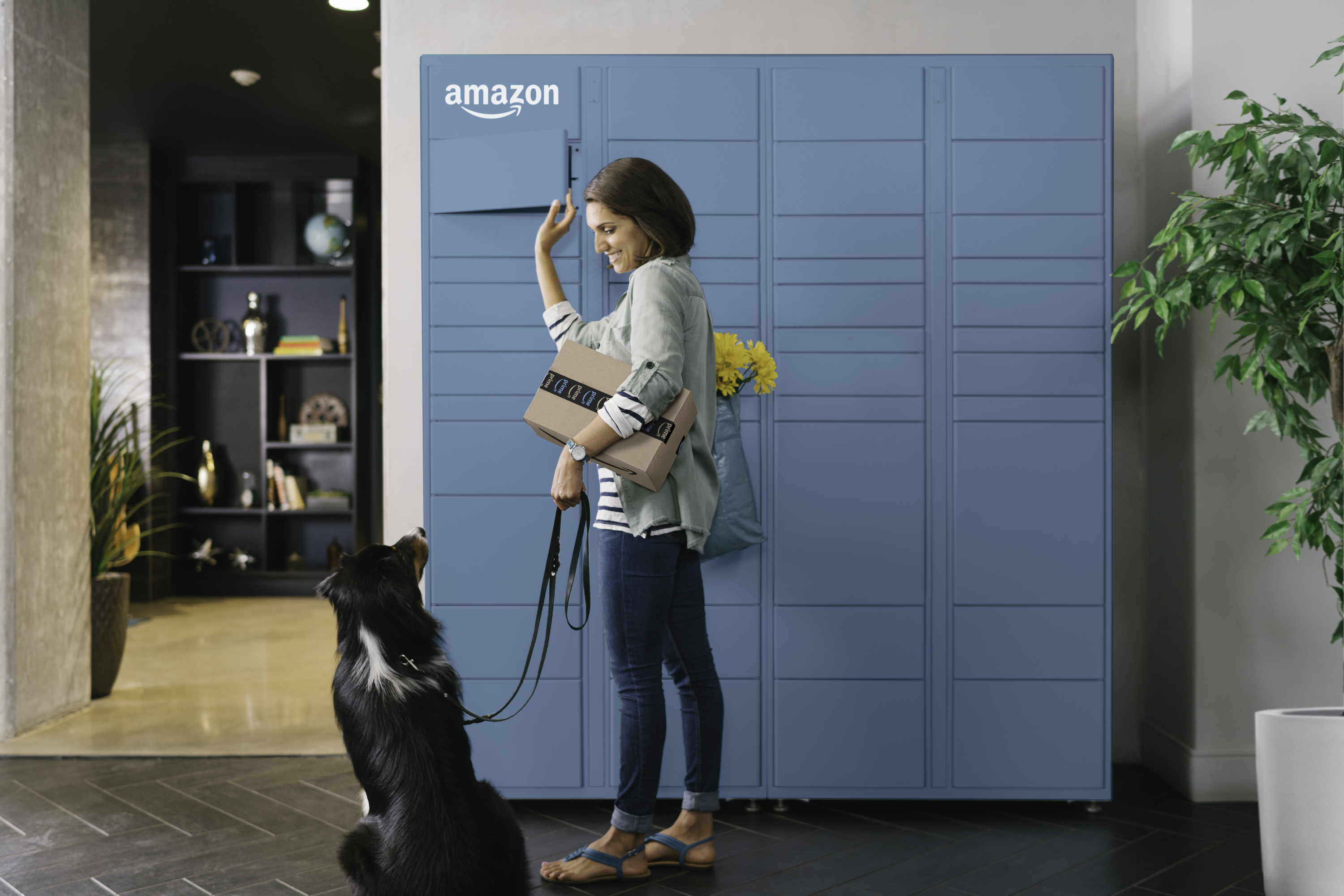Just as Walmart (WMT +1.47%) and Target (TGT +2.56%) were catching up, Amazon (AMZN 1.00%) pushed the goal line further away. CFO Brian Olsavsky told analysts during Amazon's first quarter earnings call Thursday that the e-commerce giant is working to evolve Prime's two-day shipping benefit to one-day shipping.
Walmart's head of U.S. e-commerce Marc Lore once said, "Two-day free shipping is table stakes."
Consider the stakes raised.

Amazon is working to deliver Prime-eligible products to members in one day. Image source: Amazon.com
Amazon says it will invest $800 million this quarter building out its fulfillment capabilities. It expects ongoing investments for the foreseeable future to speed up delivery times for its 100 million Prime-eligible items. The move could make Amazon an even bigger threat to brick-and-mortar retail while further building out the potential to offer carrier services for third parties.
Price, selection, and convenience
Amazon's core value proposition has always been offering customers better prices, selection, and convenience than any other retailer, online or in physical stores. Constantly investing in infrastructure to support those key attributes to its retail operations has served it well, as Amazon now accounts for about half of all online sales in the U.S.
But there are certain things that are more convenient to pick up in a store. Amazon hasn't quite cracked the grocery market, but Walmart's online grocery ordering and in-store pickup system have helped propel its online sales growth over the last two years. And sometimes you can't wait around for a couple of days to get something -- you need it now -- so you go to a store and pick it up.
"Going to one-day [delivery] increases the convenience and it increases the available selection into the consideration set," Olsavsky said on the earnings call. "We think that that will open up a lot of potential purchases." Those are purchases that would usually go to a local store like Walmart or Target, but Amazon might be able to win them with one-day shipping.
Analysts agree.
"This IS Big News, [sic] if you believe in Shipping Elasticity, which we do. The faster you ship, the more people buy," wrote RBC Capital Markets' Mark Mahaney.
Building out the logistics network
Amazon's investments in fulfillment capabilities will also bolster its potential to enter the market as a shipping service for third parties. During Amazon's fourth-quarter earnings call, Olsavsky said the company sees opportunities in shipping. An industry insider recently made a big bet that Amazon will be a significant factor in delivering packages for third parties over the next few years.

Amazon investments in its fulfillment network could lead to offering shipping services to third parties. Image Source: Amazon.com
As Amazon increases its capabilities to fulfill orders in one day, it will naturally add capacity to its fulfillment network. That means more planes, more runways, more sorting centers, and more ground delivery drivers and trucks. As its shipping capacity increases, it may look to sell extra capacity to third parties. The retailer's own scale of operations could make it a very cost-effective option for other parties' delivery needs.
Amazon is well down the road on offering third-party logistics services, if it ever comes to fruition. But investors need to consider that potential when weighing Amazon's planned investment. The $800 million invested this quarter is just the start, and analysts expect that to ramp up over the course of the year.
Logistics services have the potential to add significant high-margin revenue compared with Amazon's retail operations. What's more, if Amazon enters the logistics market, it'll be able to scale its investments more quickly with more revenue coming in, which in turn benefits its own retail operations. Amazon has run this playbook before, using itself as its biggest customer for ancillary businesses like cloud computing.
In the short term, transitioning from two-day shipping to one-day shipping may help Amazon win a few more sales over Walmart or Target. In the long term, it could make it a major threat to major couriers.








